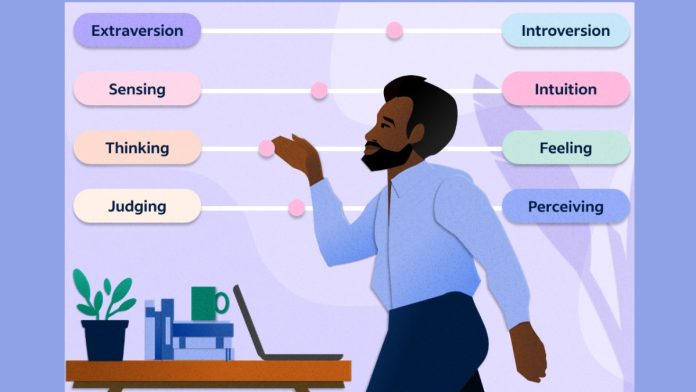According to Psychology Today, 80% of Fortune 500 companies use various personality tests to assess their employees for development, training, and team-building purposes.
Organizations across the world utilize personality assessments for various reasons, such as understanding their employees better and identifying how well a candidate will fit into a specific job role, as well as the company culture.
The uses of personality assessments can be broadly categorized into talent acquisition and talent management solutions. On the one hand, using personality tests for team building and development initiatives can help improve team alignment and employee engagement. On the other hand, pre-employment personality assessments can help assess a candidate’s cultural fit and predict their job performance.
The three most popular personality assessments in use today are the Big Five Personality Test, the Myers-Briggs Type Indicator, and the DISC assessment.
The Big Five personality assessment.
The Big Five or OCEAN personality test evaluates candidates on five key aspects: openness, conscientiousness, extroversion, agreeableness, and neuroticism. It is one of the most widely accepted personality tests available today, as it measures personality traits instead of personality types.
Openness: Individuals with high scores in openness think outside the box and thrive on innovation.
Conscientiousness: Individuals with high conscientiousness scores tend to maintain high standards of quality in their work, as this trait signifies discipline and reliability.
Extraversion: These individuals are energetic, sociable, and outgoing. They are great at communication and bring positivity to the team.
Agreeableness: These individuals are compassionate and cooperative and often hold the team together in challenging situations.
Neuroticism: Individuals with high scores in this trait may indicate vulnerability to stress, but supporting these individuals can help build more resilient and empathetic teams.
The Big Five personality assessment provides a general personality description. However, the results of this assessment can also provide indicators of workplace performance. For instance, agreeableness is a trait that can help improve teamwork, while extraversion is an important trait to possess for job roles involving public interactions, like that of a teacher or a sales executive. That is why the Big Five personality test is mostly used as a part of the recruitment process.
The Myers-Briggs Type Indicator (MBTI)
This personality model was originally developed by Katherine Cook Briggs and her daughter, Isabel Briggs Myers. The MBTI model identifies people as having one of sixteen types of personalities, which is determined by their ranking along four scales.
Extraversion [E]-Introversion [I]: This determines whether one prefers being among other people or if they would rather be on their own.
Sensing [S]-Intuition [N]: This is about how individuals collect information. Sensors take what they see, hear, and feel into account, while intuitive individuals focus on the possibilities of what might be.
Thinking [T]-Feeling [F]: This is about how individuals make decisions. The thinking trait involves objective logic and fact-based decision-making, while feeling emphasizes more on emotions and values.
Judging [J]-Perceiving [P]: This refers to how individuals approach the world. Judging individuals prefer a planned and organized way of life while perceiving individuals enjoy spontaneity.
The MBTI can be utilized to foster better communication. Understanding the MBTI personality type of coworkers can help evaluate their communication styles, enabling better connection with them. It can also be used to improve team efficiency by assigning tasks and responsibilities that align with the strengths of different employees. MBTI can also help leaders tailor their approach and leadership pattern to meet the needs of the team.
The DISC assessment
The DISC personality model is based on four personality types. The assessment measures the dimensions of an individual’s personality and describes their behavior under different circumstances.
Dominance [D]: People with the D-personality type tend to be confident and have a strong focus on accomplishing goals.
Influence [I]: People with this personality type are more open and focused on their relationships.
Steadiness [S]: S-type personalities are dependable individuals who emphasize sincerity and cooperation.
Correctness [C]: These individuals focus on competency, expertise, accuracy, and quality.
In the workplace, DISC assessments can help improve communication and ensure conflict resolution. It can also help teams understand cognitive diversity and how it can be harnessed to improve the outcomes of their undertakings.
Mercer | Mettl offers a range of personality assessments that can be customized according to the organization’s needs. These personality assessments can provide data-driven insights to support decision-making across the entire employee lifecycle. Evaluate the organization’s hiring and L&D requirements to utilize the right combination of assessments and pre-employment tools.


